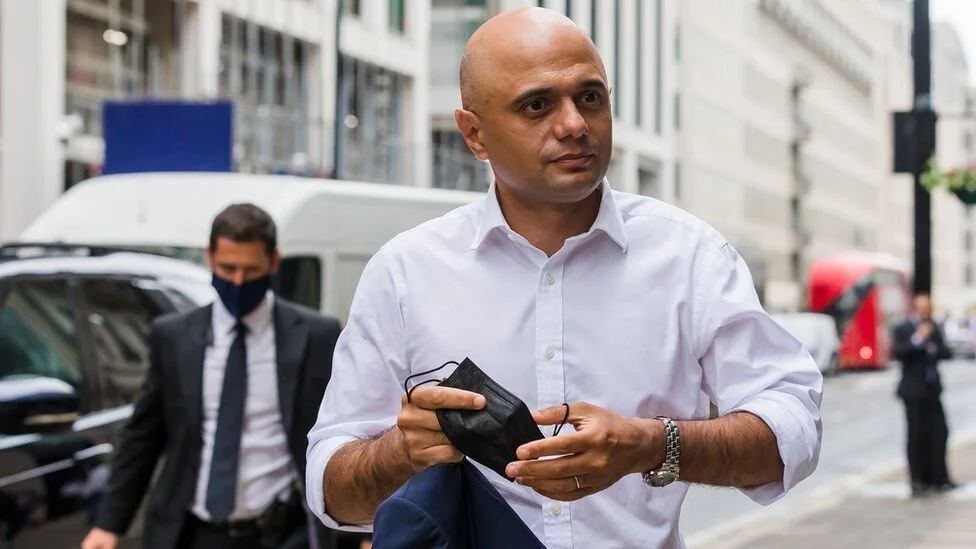What the new Health Secretary means for digital health
Matt Hancock and Sajid Javid
In his three year tenure as Secretary of State for Health, Matt Hancock presided over a number of digital achievements, from the founding of NHSX to the formation of a new UK Health Security Agency.
A former minister for digital policy, his appointment came at a pivotal time in digital healthcare reform. And so did his resignation. So, what will the appointment of Sajid Javid as the new Health Secretary spell for digital transformation in the NHS?
“Whilst it’s unlikely that the new health secretary will sideline digital ambitions completely, we can expect to hear less on the matter in comparison to his predecessor.”
Who is Sajid Javid?
From granting export licenses to send arms to Saudi Arabia in the midst of Yemeni war crime allegations as Business Secretary, to stripping Shamima Begum of her British citizenship as Home Secretary, Sajid Javid has undoubtedly made some controversial decisions throughout his time in office.
Prior to his 2010 entry to politics, Sajid Javid worked in corporate finance on a multi-million pound salary, where he sold collateral debt obligations during the 2008 financial crash. When he was selected by Boris Johnson to join government as Health Secretary, he was supplementing his MP income with a £15,000 advisory role for JP Morgan - a company which has historically made moves to drive innovation in quality and health equity in the private healthcare sector. Whilst many might see views on moving towards a privatised healthcare system in the UK as unfavourable, if Javid prioritises building relationships with companies to increase efficiency and productivity in the NHS, whilst maintaining free access for all - a more commercial lens could ultimately pave the way for positive digital transformation.
“A more commercial lens could ultimately pave the way for positive digital transformation.”
Sajid Javid been labelled the “fox in the chicken coop” by members of the opposition due to the role he played in funding the NHS whilst he was Chancellor of the Exchequer, and he is “ideologically committed to privatisation” of public services. This, combined with an apparent lack of experience in healthcare, poses the question of whether he is likely to turn to digital health companies for answers to some of problems his department is facing, or whether he will go full steam ahead in engaging with direct providers of private healthcare - the latter of which would create barriers to access for large swathes of the population.
The new Health Secretary has “inherited a half-started set of changes to England’s public health infrastructure”, and the next few weeks are critical to understanding how the healthcare system is likely to fare under Sajid Javid. Will he redirect efforts being made to boost the digital health agenda, or will he prioritise the vaccination roll-out and reducing the surgical backlog?
What does the new Health Secretary have in his in-tray?
Amanda Pritchard, the new NHS Chief Executive
Not least has he overseen the appointment of Amanda Pritchard as the next NHS Chief Executive - a choice that will define the service for many years to come - he must now tackle the backlog which he estimates has resulted in seven million people missing routine care since early 2020.
On top of this, Javid must play his part in guiding one of the most crucial healthcare reforms in recent memory through parliament - the Health and Care Bill - which will require every NHS England trust to implement an Integrated Care System (ICS). The UK Government says that the Bill will make the NHS “less bureaucratic, more accountable, and more integrated in the wake of COVID-19”.
Even before Matt Hancock’s resignation, the task of building a digital health service was huge, and now Javid is under intense pressure to achieve the ambitious goals set out in the Department of Health and Social Care’s new data strategy, as well as leading the introduction of an already delayed General Practice Data for Planning and Research (GPDPR) service - both of which aim to streamline multiple sources of data, and the latter of which was hit with controversy as many GPs refused to participate.
What will he prioritise first?
The new ICS legislation hopes to remove red tape from the system, and streamline the procurement process, but chair of the Digital Health Chief Clinical Information Officer (CCIO) Network, Dr James Reed, has already warned that the new Health Secretary must not ‘kick digital and data programmes into the long grass’ to achieve these goals.
With the Health and Care Bill already on the floor in Parliament, it’s likely that this will take immediate precedence. However, it’s to be expected that digital will remain high on the agenda for Javid, as moving the NHS to a future-oriented, cost-effective system relies on significant digital transformation - the importance of which he will be well-acquainted with given his background in finance and the Treasury. It would be beneficial for him to explore digital providers that can support with crucial elements of ICSs, from the all important data security and analysis, right down to the way that individual systems manage their daily tasks.
“It’s to be expected that digital will remain high on the agenda for Javid, as moving the NHS to a future-oriented, cost-effective system relies on significant digital transformation.”
The aims of the Bill may be welcome in a post-pandemic world, but it’s crucial that the Health Secretary makes sure that the basic digital infrastructure is in place for such change, and that staff feel confident with their digital capabilities in order for ICSs to work as intended. If our new Health Secretary can do one thing to bolster the use of digital in healthcare, it would be to encourage and provide the equipment and training for health and social care staff to improve their digital literacy in the face of the upcoming changes. Previously, in his role as Communities Secretary, Javid supported initiatives that focused on improving digital capabilities in order to to improve efficiency in the day-to-day working of local councils - something that we hope will continue to be prioritised as he settles into his new role.
Sajid Javid must prepare the health and social care system to harness the full power of digital technologies that will allow real time information sharing, collaboration, and flexibility across the ICS in order to create a truly integrated care system. Not only fully integrating the way we work now, but also the new ways of working in the future.
Whilst it’s unlikely that the new health secretary will sideline digital ambitions completely, we can expect to hear less on the matter in comparison to his predecessor whilst he prioritises his initial goals of reducing the backlog and delivering the vaccination programme at scale. We can only hope that Sajid Javid does keep digital transformation on the agenda for the benefit of the NHS staff and patients that so dearly need it to come to fruition, and it will certainly be interesting to see how it pans out.









